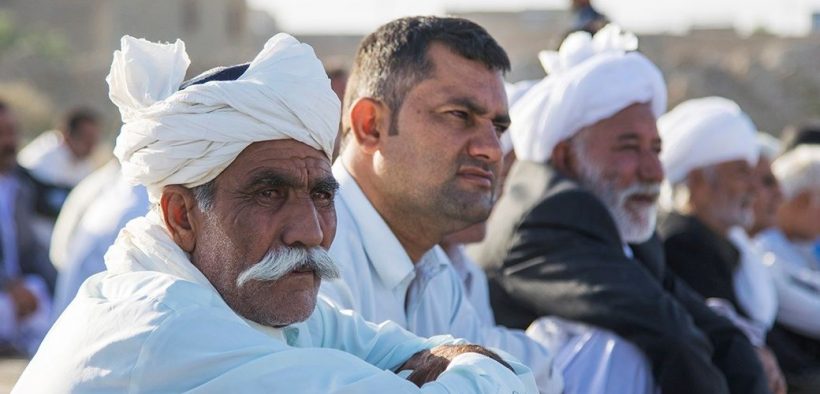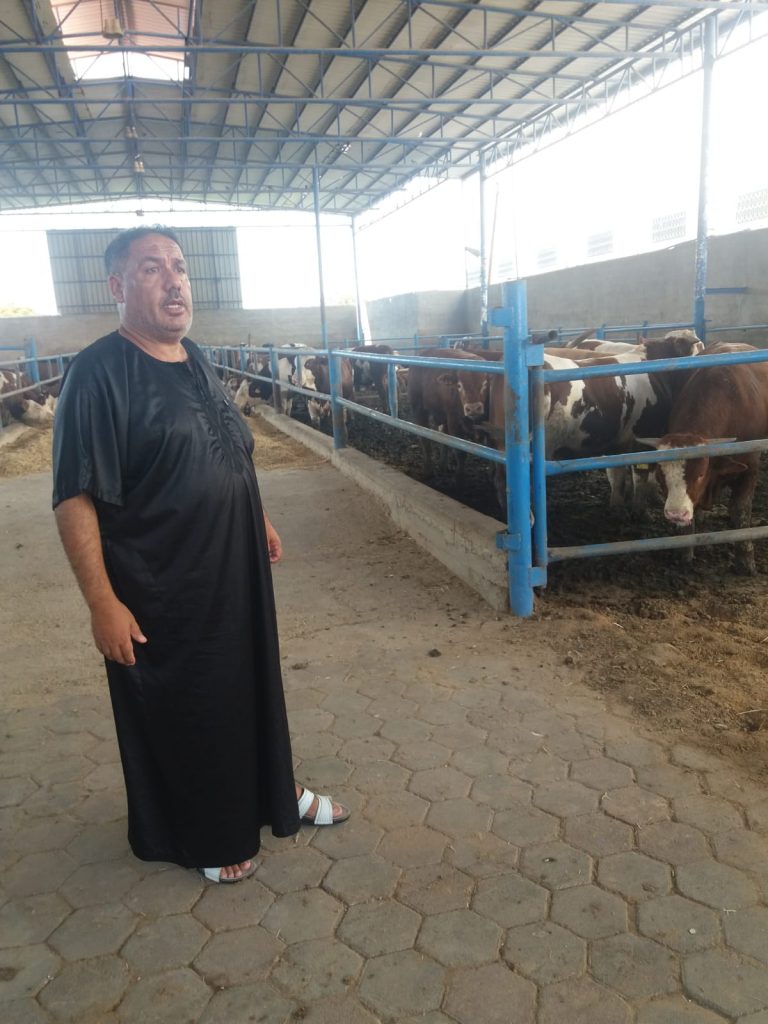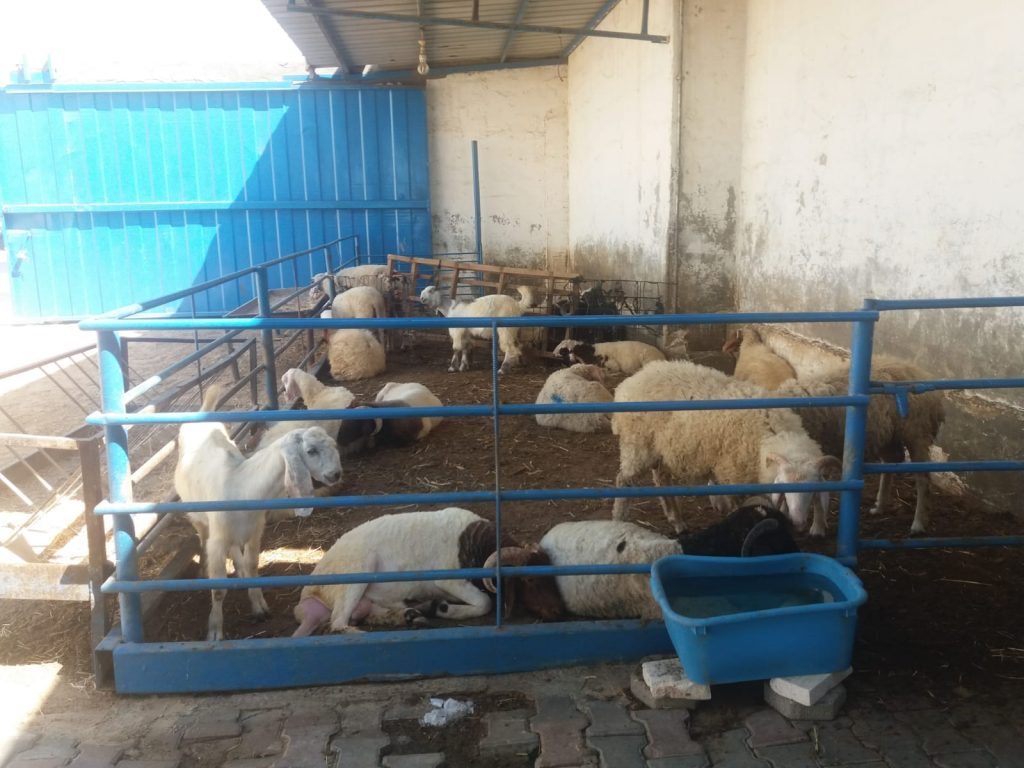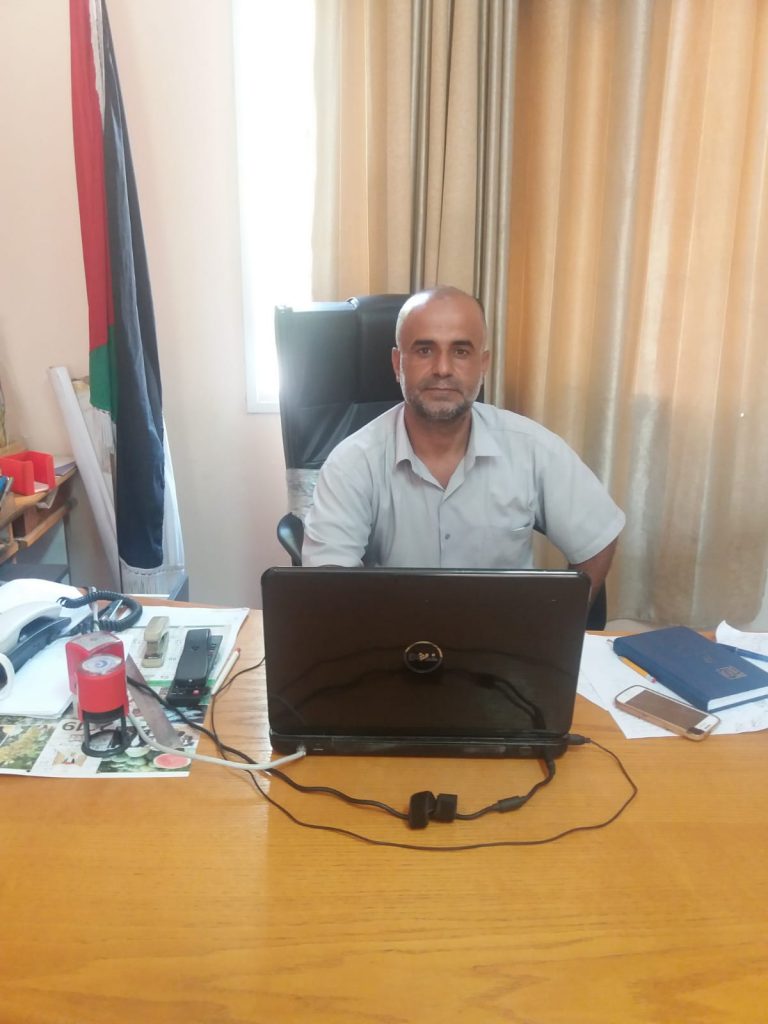Under Gaza’s Worsened Economy, Eid al-Adha Is Just Another Day

As the Muslim world marks Eid al-Adha, the Palestinian residents in Gaza face economic hardships that make it difficult for them to observe the occasion smoothly or normally.
Eid al-Adha or the “Festival of Sacrifice” is the second of two Islamic holidays celebrated worldwide each year. The four-day celebration marks the remembrance of the willingness of prophet Abraham’s sacrifices to his Lord, which many mark by slaughtering an animal in the name of God. It is then divided into three parts: to the poor and needy, to relatives, friends and neighbors, as well as family.
But Palestinian Muslims in Gaza are struggling financially to mark the occasion. The people’s inability to celebrate the Eid al-Adha, or sacrifice, could be seen in places like the livestock farm of Raed Affana, on the Salah Eldin main road in central Gaza Strip. Raed’s farm is said to be the largest in the approximately 450,000-resident region.

Raed Affana, owner of the largest livestock farm in Central Gaza. (Photo Rami Almeghari)
“As you see here, I am sitting idle at my farm, along with my two sons. Since the early morning, up to this moment, we have only received very few customers. Despite the fact that prices of our livestock and sheep are as same as those of last seasons, people seem can not [sic] afford to buy. Salaries of government employees, on the payroll of the Palestinian Authority, have been already received, yet only few customers are showing up,” Raed Affana, owner of the Affana livestock farm on the main road of the Alzawayda village, central Gaza Strip, told Citizen Truth.
Only Hoping
Affana hopes to sell out some of his livestock for this season.
“In fact, I am not expecting much sales for this season. Since the beginning of the pilgrimage rituals, few days ago, I was able to sell out two calves and four sheep. Last year, I managed to sell out 30 calves, only. Yet, back in 2016 to 2017, I was able to sell out about 150 calves. The purchase power of residents seems to have badly dropped over the past three years,” Affana explained while showing off the calves and sheep at his farm.

Raed Affana’s livestock farm in the Gaza Strip. (Photo: Rami Almeghari)
Helpful Channels
A local profitable organization in the central Gaza Strip refugee camp of Alnuseirat, “Goodness Steps,” that has in previous years helped families in central Gaza Strip with a monthly installment program, says that many of its customers from previous years have not visited this season.
“We have seen about [sic] 80 percent drop in those looking to have livestock slaughtered during Eid this year, in comparison to the last three years,” said program coordinator Mohammad Alhour.
“In 2014, we managed to help 150 families mark the occasion properly by having 25 livestock, mainly calves, slaughtered on the basis of sharing,” Alhour added. “A group of six to seven men, who are head of the families, shared one calf. It was such a great moment, not only for us but for those who managed to mark such an important Islamic occasion.”
Other Channels
This season, around 35 international and Arab charitable organizations with offices across the Gaza Strip will promptly help a few hundred thousand impoverished households in the Gaza Strip.
“Actually, for the past couple of years, we in the ministry have followed up on the distribution of Eid meat, provided by many charitable organizations from the Arab world and the other foreign countries, during the Eid season,” Amir Alqiq, Head of the Foreign Charitable Organizations Department with the Gaza-based interior ministry, told Citizen Truth.
Alqiq revealed that this season of 2019, around 250,000 Palestinian families all over the Gaza Strip will be receiving Eid meat.
“Each household will get a package of 1-kgm to 2-kgm or 2.5-kgm, depending on the number and case of each family,” Alqiq said.
Imported Livestock
The majority of the livestock in Gaza are imported from either Israel or other countries. The Palestinian ministry of agriculture in Gaza said that due to the limited size of farmland in the Gaza Strip and the inability to grow crops for fodder, Gaza does not have farms to breed such animals.

Hassan Azzam of the Agriculture Ministry in Gaza. (Photo: Rami Almeghari)
“Last year of 2018, Gaza had imported a total of 30,000 livestock; 12,000 of them were slaughtered during the four-day Eid of Aladha. We expect this season to observe consumption of 10,000 to 12,000 livestock. So far, 9,000 livestock have been imported. The drop in consumption is estimated at 5,000 livestock since 2015. We have 20 registered importers of livestock across the Gaza Strip,” Head of the Veterinary Department with the Gaza-based agriculture ministry, Hassan Azzam, told Citizen Truth a few days before the Eid al-Adha began.
Worsened Economy
Over the past few years, at least 40,000 Gaza-based employees on the West Bank-based Palestinian Authority’s payroll have had their monthly salaries cut down to half due to PA-imposed measures for the Hamas-ruled Gaza. This goes with a crippling Israeli blockade that has been in place for 12 years now.
In addition, around 45 thousand government employees, others who are on the payroll of the Hamas-led authorities in Gaza, have had their monthly salaries halved since 2014, when a consensus Palestinian government was installed as a result of the Hamas-Fatah unity deal, signed in Gaza in April 2014.
The ongoing political standoff between Hamas and Fatah has contributed to the failure of both sides to realize the implementation of that unity deal.
There are currently 100,000 jobless Palestinians in Gaza, as more than 90 percent of Gaza’s industrial facilities have been forced to shut down due to the Israeli siege, and more than 60 percent of Gaza’s two million residents live under the poverty line. With such dire situations and an ongoing economic turmoil, the traditional feast will be unaffordable for many struggling families, and Eid al-Adha will be just another day.








The Palestinians have got the message, long since. They are effectively abandoned by all the world, even by Arab countries. Lip service does not provide clean water, food, jobs, ancestral homes and lands. The principles at play are self-evident, and they have no relationship whatsoever with human rights, law, or justice. Instead, the world plays ball hypocritically with the criminal colonial zionist regime.